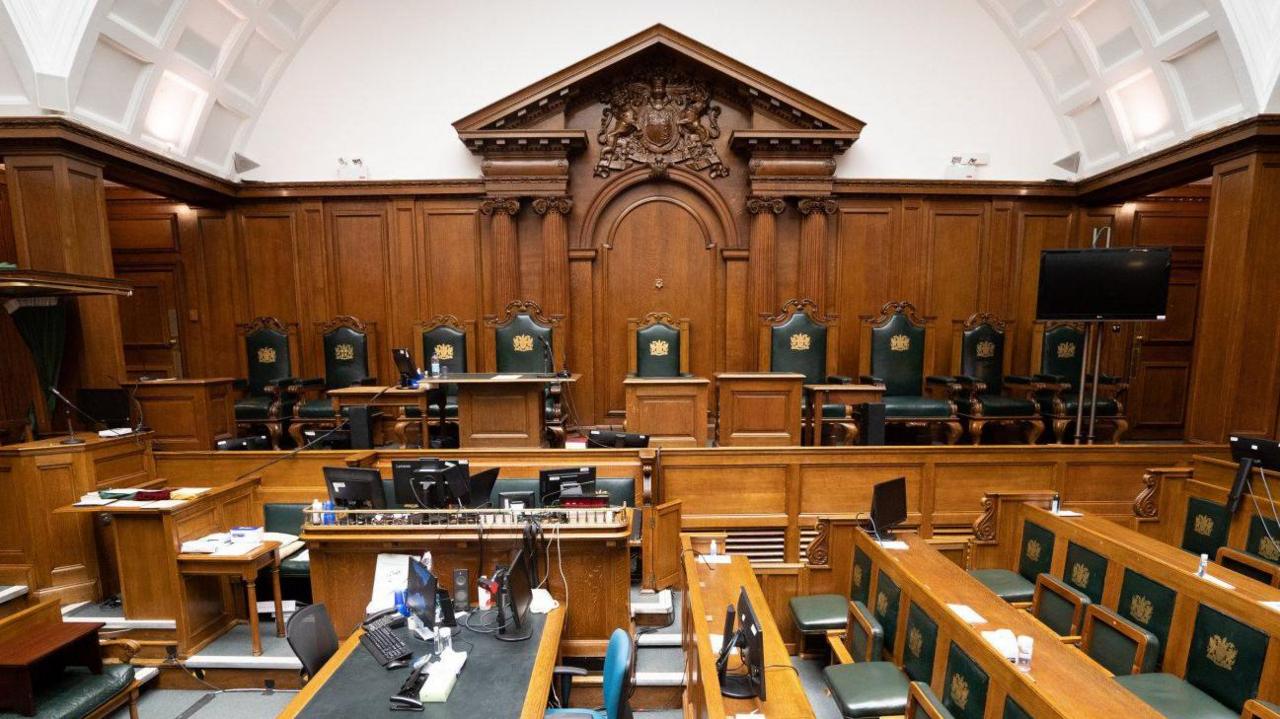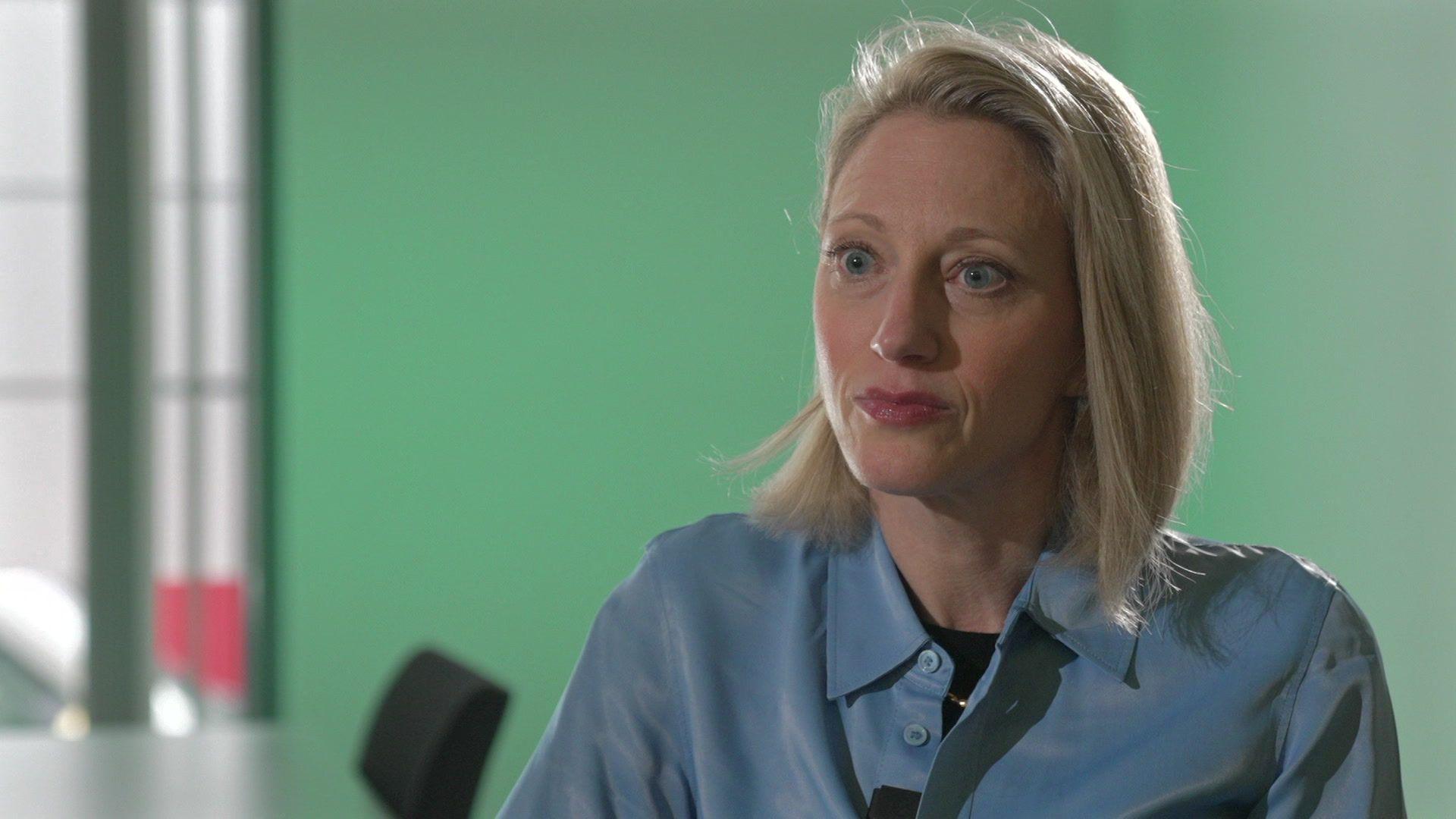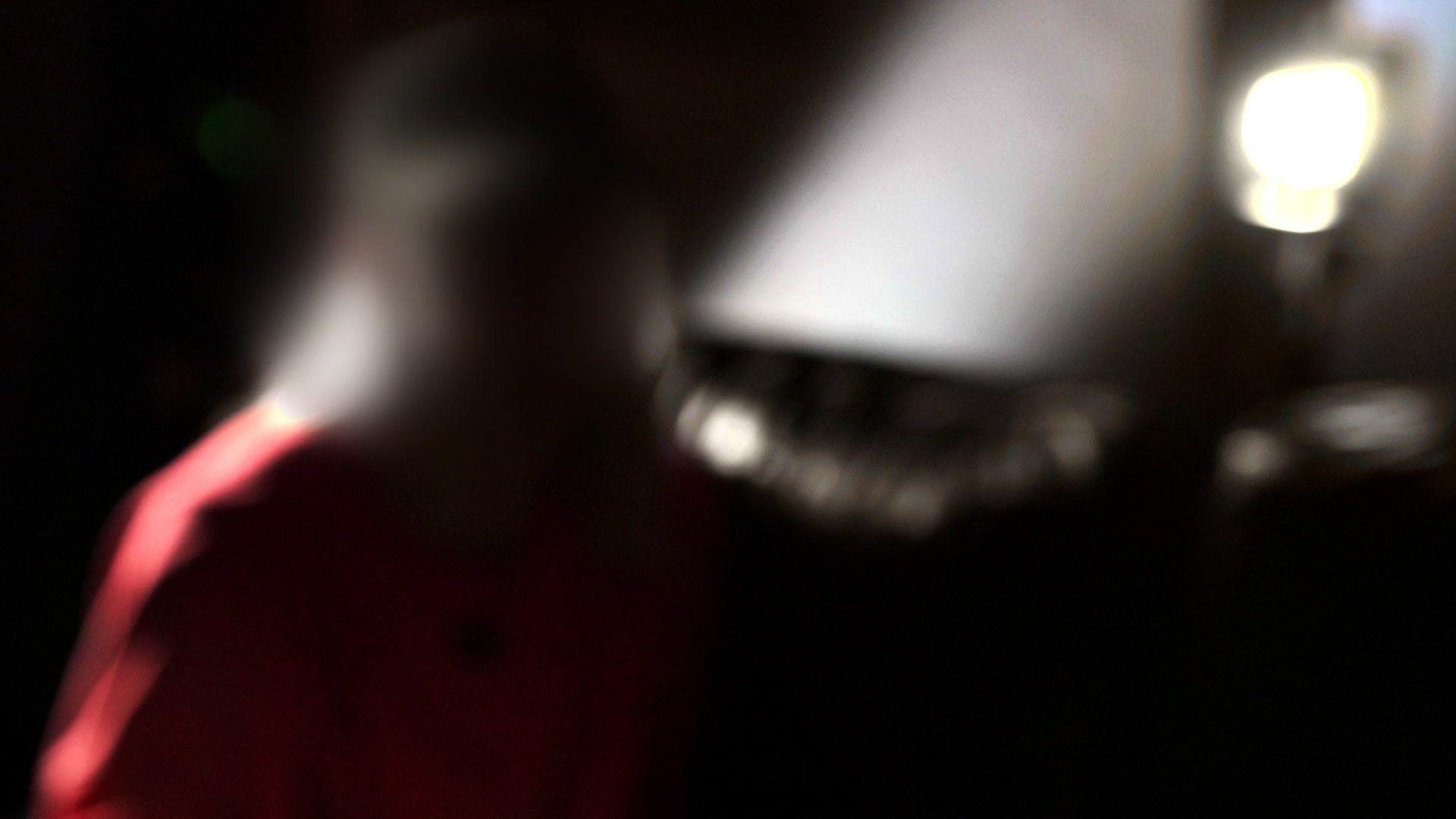'Victims drop out fearing daunting court hearings'

Virtual reality tours of courtrooms could be developed to help make giving evidence less daunting, Ms Waxman said
- Published
London's victims' commissioner has called for more support to prepare vulnerable witnesses for the "daunting and traumatising experience" of giving evidence in court.
Claire Waxman said some victims were waiting as long as seven years between reporting an offence and the case coming to trial and around 146 are dropping out every month after charges are brought.
"If victims aren't coming forward, staying in the justice process, then we can't bring offenders to justice and that means the public is at risk," she said.
Among her recommendations are dedicated sessions preparing for the adversarial nature of cross examination, virtual courtroom tours, and a single point of contact to help them navigate the system.
So what do complainants and others working in the criminal justice system think about these ideas?

London victims' commissioner Claire Waxman said vulnerable witnesses are not being given the support they need
Ms Waxman, whose role is to work alongside victims and other agencies to try to improve their experience in the criminal justice system, said there was a record backlog of more than 18,000 cases waiting to come to crown courts in London.
"Often those cases can be adjourned and delayed the night before - or on the morning of - and victims have geared themselves up, and then when it's moved it has a profound impact on them. They're having to wait and put their lives on hold," she said.
"A courtroom, giving evidence and being cross examined, is an incredibly daunting and traumatising experience and I just don't think we give the right type of support to victims going into that."
In July, Ms Waxman published a report that found on average 40% of victims in the study withdrew from the justice process prior to a charging decision being made.
She is due to take up the role of victims' commissioner for England and Wales in the New Year.
Cross-examination 'a form of fight'
Violet, whose name has been changed to protect her identity, waited five years between reporting to police that she had been raped and the case coming to trial.
"It's too long to be suspended in horror," she said.
"The process is brutal for your mental health. To dredge up arguably the most traumatic events of your life, in public, to strangers, again and again across five years, is extremely traumatising."
She said there were "countless times" where she nearly dropped out.
"There was something inside me, a feeling that I had to get to court, but I don't think it's like that for everyone."
The defendant was found not guilty.

'Violet' said she had considered dropping out of the justice system countless times after reporting to police that she had been raped
Although Violet took it upon herself to do lots of research and reading on the legal process, she said none of it was enough to prepare her for going into court, which she referred to as "the judge's house".
"It's not my space, it's not a victim's space, it is us fitting into the court culture.
"I'm sure everyone's used to meetings, presentations, but court is not that. Typically, in those other situations, the other person is there to get the best from you."
She compared the feeling of facing a cross-examination as like "a form of fight that you're preparing for".
Ms Waxman has called for dedicated sessions where a trained support worker could advise vulnerable witnesses on how to speak clearly, where to direct their gaze and role-play the cross examination.
Witnesses are not allowed to discuss their evidence to ensure they are not influenced by anyone else, in order to give the defendant a fair trial, and Ms Waxman stressed the role-play would focus on a neutral subject instead, such as a trip to the cinema.
She added that although there were some existing opportunities to do this, sometimes they were basic or rushed, due to courtrooms being unavailable.
In Violet's case, she explained how she was able to attend a session where she was asked a few basic questions about her breakfast that morning.
"What did you eat? Do you remember was it 7 am or 8 am? Isn't it interesting you don't seem to be able to place the time your breakfast was at? Do you remember the colour of the bowl?
"These questions, they sound stupid perhaps, but they are essential in helping someone prepare for what might be an extremely traumatic and overwhelming moment."
She said the session had been a "lifeline" to her and believed it would be helpful for others.
Ms Waxman acknowledged that safeguards would be needed to ensure that witnesses were not portrayed at trial as having been "coached," which could undermine their credibility to the jury.
She said the content of the sessions should be developed alongside the Crown Prosecution Service, judiciary and the Criminal Bar Association and suggested it could also be offered to defence witnesses to ensure fairness.
The aim, she said was for victims to feel "confident being in a certain environment".
"English can often be their second language, there's difficulty in understanding. We see victims with neurodiversity and disability. It can be a real struggle to get across what they want to in the court room, and it's just getting them used to speaking publicly."
Virtual courtroom visits
Ms Waxman also called for 360-degree videos of London courtrooms to be available online, and said it could be possible to develop virtual reality tours to help familiarise victims with the space and the roles of everyone in them.
Although some victims are able to visit court in person, ahead of their hearing, she said that last-minute changes can make this difficult.
Stories from court hearings as home repossessions hit five-year high
- Published1 day ago
Delays to my rapist's trial left me terrified, survivor tells BBC
- Published2 days ago
Why victims are quitting the criminal justice system
- Published16 July
Riel Karmy-Jones KC, chair of the Criminal Bar Association said, in principle, they were in favour of complainants of some offences, such as rape, being given "some equality" in how they prepare for trial as defendants.
She said, too often, complainants meet the prosecution barrister just before they go into court, when they are "extremely nervous and anxious".
"Complainants should not be put in a position where they are surprised by their account being challenged in court, or shocked when they are accused of lying."
Ms Karmy-Jones KC said barristers were best placed to support with this, but must be paid fairly, and questions remained such as when and how the sessions would take place and what information would be shared with others involved in the case.
The deputy mayor for policing and crime, Kaya Comer-Schwartz, said she fully supports making the justice process clearer for victims to navigate and an increase in wraparound support.
Giving evidence remotely
Dr Nigel Gould-Davies said he had found it "immensely helpful" to visit a courtroom ahead of giving evidence in his case against a woman who was convicted of stalking him.
Farah Damji, 58, was jailed for six years at Wood Green Crown Court in July.
Dr Gould-Davies said even stepping into the empty courtroom had left him "trembling and actually tearful".
"It's easy to imagine people being intimidated by the theatre, the drama of court, people with cloaks and wigs," he said. "The more you can know about it in advance the better."
He said that despite being an academic, and a former diplomat, he had found facing cross-examination tough.
"I'm someone who is pretty comfortable and confident in the use of words and arguments. I'm not especially intimidated by authority or well educated people challenging me.
"But yet, even for me, it was a very difficult, distressing and stressful experience."
He added that there should be more education for young people about what happens in court.
"Every year, a proportion of us will be touched by it, and yet the first time you use it, you are learning about it, under great pressure and stress."
Ms Waxman also called for more remote locations to be agreed upon with the judiciary, where vulnerable witnesses can give their evidence without stepping into the courtroom itself.
Victim care hub
A Victim Care Hub should be established, she added, which would act as a single and consistent point of contact providing updates and answers to their questions.
She said, in one case, a victim had been given the wrong court date, meaning that she missed out on giving her evidence and the charges against the defendant were dropped.
Violet said a Victim Care Hub would be "a brilliant thing".
"To have one person that you can trust that has all the information that's up to date, that's ready to be there whenever you need them, to be able to talk to you about the process and what to expect would be extremely helpful."
Is reform possible?
But introducing these reforms, developing technology and training, would clearly require more investment, so how realistic is that?
Ms Waxman acknowledged that victim support services faced a "very difficult climate" and said funding had been cut by around 4%.
"But if we're going to lose victims, and see such a high withdrawal rate, we have to address that.
"If victims aren't coming forward, staying in the justice process, then we can't bring offenders to justice and that means the public are at risk."
Dr Gould-Davies said the reforms could reduce the length of trials or ensure that they go ahead as planned.
"Better trials for our over-crowded courts not only serve justice but can save money too."
Violet said she wants to see more funding for the new measures.
"If it's a priority, which it should be, given this government has said it wants to halve violence against women and girls in the next decade, it's time to put the money where their mouth is."
Listen to the best of BBC Radio London on Sounds and follow BBC London on Facebook, external, X, external and Instagram, external. Send your story ideas to hello.bbclondon@bbc.co.uk, external